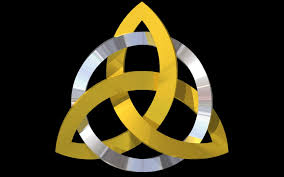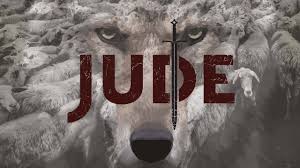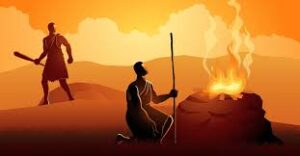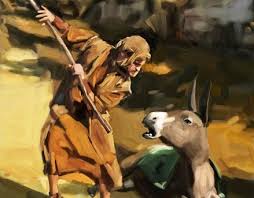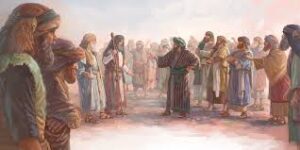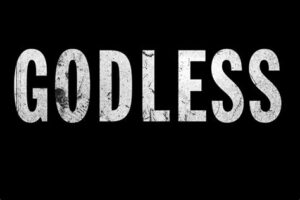Bd – End Notes
End Notes
The Book of Jude from a Jewish Perspective
1. Jude: The Acts of the Apostates, by Maxwell Coder, Moody Press, Chicago, IL, 1967, pg 3.
2. The Messianic Jewish Epistles, Hebrews, James, I and II Peter, and Jude, by Arnold Fruchtenbaum, Ariel Ministries, San Antonio, Texas, 2005, page 428.
3. 2 Peter and Jude, by John MacArthur, Moody Press, Chicago, IL, 2005, pages 141-142.
4. The Bible Knowledge Commentary of the New Testament, by John Walvoord and Roy Zuck, Victor Books, Wheaton, Illinois, 1983, page 918.
5. 2 Peter and Jude, by John MacArthur, Moody Press, Chicago, IL, 2005, pages 144-145.
6. The Letters of John and Jude, by William Barclay, Westminster John Knox Press, Louisville, Kentucky, 1958, pages 183-190 and 229-230.
7. The Bible Knowledge Commentary of the New Testament, by John Walvoord and Roy Zuck, Victor Books, Wheaton, Illinois, 1983, page 918.
The Similarities Between Jude and Second Peter
8. The Messianic Jewish Epistles, Hebrews, James, I and II Peter, and Jude, by Arnold Fruchtenbaum, Ariel Ministries, San Antonio, Texas, 2005, pages 428-429.
Jude 1-2
9. In These Last Days, by Kenneth Wuest, Eerdmans Publishing Company, Grand Rapids, Michigan, 1954, page 231.
10. The Letters of John and Jude, by William Barclay, Westminster John Knox Press, Louisville, Kentucky, 1958, page 200.
11. Jude: The Acts of the Apostates, by Maxwell Coder, Moody, Chicago, IL, 1967, page 9.
12. 2 Peter and Jude, by John MacArthur, Moody Press, Chicago, IL, 2005, page 151.
13. The NIV Application Commentary: 2 Peter and Jude, by Douglas Moo, Zondervan, Grand Rapids, Michigan, 1996, page 226.
The Danger of Apostates
14. 2 Peter and Jude, by John MacArthur, Moody Press, Chicago, IL, 2005, page 139.
Jude 3 and Second Peter 1:5-7
15. The Epistle of Jude, by George Lawrence Lawlor, The Presbyterian and Reformed Publishing Company, Phillipsburg, New Jersey, 1976, page 43.
16. Jude: The Acts of the Apostates, by Maxwell Coder, Moody, Chicago, IL, 1967, page 17.
17. In These Last Days, by Kenneth Wuest, Eerdmans Publishing Company, Grand Rapids, Michigan, 1954, page 235.
18. The Jewish New Testament Commentary, by David Stern, Jewish New Testament Publications, Clarksville, Maryland, page 757.
19. First and Second Peter, by Thomas Schreiner, The New American Commentary, B & H Publishing Group, Nashville, Tennessee, 2003, page 300.
20.2 Peter and Jude, by John MacArthur, Moody Press, Chicago, IL, 2005, pages 41-42.
21. First and Second Peter, by Thomas Schreiner, The New American Commentary, B & H Publishing Group, Nashville, Tennessee, 2003, page 301.
22. Sermon Central: From a sermon by Jeff Strite, Restoration, 5/9/2011.
Jude 4 and Second Peter 2:1 and 3b
23.2 Peter and Jude, by John MacArthur, Moody Press, Chicago, IL, 2005, pages 157-158.
24. In These Last Days, by Kenneth Wuest, Eerdmans Publishing Company, Grand Rapids, Michigan, 1954, page 236.
25. Jude: The Acts of the Apostates, by Maxwell Coder, Moody, Chicago, IL, 1967, page 23.
26. The Letters of John and Jude, by William Barclay, Westminster John Knox Press, Louisville, Kentucky, 1958, page 205.
27. 2 Peter and Jude, by John MacArthur, Moody Press, Chicago, IL, 2005, page 162.
28. The Letters of John and Jude, by William Barclay, Westminster John Knox Press, Louisville, Kentucky, 1958, pages 205-206.
The Doom of Apostates
29. Jude: The Acts of the Apostates, by Maxwell Coder, Moody, Chicago, Illinois, 1967, pages 26-27.
30. The NIV Application Commentary: 2 Peter and Jude, by Douglas Moo, Zondervan, Grand Rapids, Michigan, 1996, page 239.
Jude 5 and First Corinthians 10:5-11
31. First and Second Peter, by Thomas Schreiner, The New American Commentary, B & H Publishing Group, Nashville, Tennessee, 2003, page 442.
32. The Letters of John and Jude, by William Barclay, Westminster John Knox Press, Louisville, Kentucky, 1958, page 207.
33. The NIV Application Commentary: 2 Peter and Jude, by Douglas Moo, Zondervan, Grand Rapids, Michigan, 1996, page 240.
34. 2 Peter and Jude, by John MacArthur, Moody Press, Chicago, IL, 2005, page 221.
35. Ibid, page 222.
36. Answers to Tough Questions, by Carl Laney, Kregel Publications, Grand Rapids, Michigan, 1997, page 264.
37. 2 Peter and Jude, by John MacArthur, Moody Press, Chicago, IL, 2005, page 225.
38. The NIV Application Commentary: 2 Peter and Jude, by Douglas Moo, Zondervan, Grand Rapids, Michigan, 1996, page 240.
39. The Letters of John and Jude, by William Barclay, Westminster John Knox Press, Louisville, Kentucky, 1958, page 208.
40. Jude: The Acts of the Apostates, by Maxwell Coder, Moody, Chicago, IL, 1967, page 38.
Jude 6 and Second Peter 2:4
41. The Epistle of Jude, by George Lawrence Lawlor, The Presbyterian and Reformed Publishing Company, Phillipsburg, New Jersey, 1976, page 56.
42. In These Last Days, by Kenneth Wuest, Eerdmans Publishing Company, Grand Rapids, Michigan, 1954, pages 239-240.
43. Second Peter and Jude Tyndale NT Commentary, by Michael Green, Grand Rapids:
Eerdmans Publishing Company, 1968, page 110.
44.The NIV Application Commentary: 2 Peter and Jude, by Douglas Moo, Zondervan, Grand Rapids, Michigan, 1996, page 241.
45. The Epistle of Jude, by George Lawrence Lawlor, The Presbyterian and Reformed Publishing Company, Phillipsburg, New Jersey, 1976, page 63.
46. 2 Peter and Jude, by John MacArthur, Moody Press, Chicago, IL, 2005, page 86.
Jude 7 and Second Peter 2:6
47. The Letters of John and Jude, by William Barclay, Westminster John Knox Press, Louisville, Kentucky, 1958, pages 211-212.
48. The Messianic Jewish Epistles, Hebrews, James, I and II Peter, and Jude, by Arnold Fruchtenbaum, Ariel Ministries, San Antonio, Texas, 2005, page 434.
49. Second Peter and Jude Tyndale NT Commentary, by Michael Green, Grand Rapids:
Eerdmans Publishing Company, 1968, page 180.
50.The NIV Application Commentary: 2 Peter and Jude, by Douglas Moo, Zondervan, Grand Rapids, Michigan, 1996, pages 251-255.
The Description of Apostates
51. The Epistle of Jude, by George Lawrence Lawlor, The Presbyterian and Reformed Publishing Company, Phillipsburg, New Jersey, 1976, page 74.
52. The Letters of John and Jude, by William Barclay, Westminster John Knox Press, Louisville, Kentucky, 1958, pages 183-190.
Jude 8 and Second Peter 2:10
53. 2 Peter and Jude, by John MacArthur, Moody Press, Chicago, IL, 2005, page 171.
54. The Epistle of Jude, by George Lawrence Lawlor, The Presbyterian and Reformed Publishing Company, Phillipsburg, New Jersey, 1976, page 75.
55. 2 Peter and Jude, by John MacArthur, Moody Press, Chicago, IL, 2005, page 97.
Jude 9 and Second Peter 2:11
56. The Jewish New Testament Commentary, by David Stern, Jewish New Testament Publications, Clarksville, Maryland, 1992, Page 782.
57. Answers to Tough Questions, by Carl Laney, Kregel Publications, Grand Rapids, Michigan, 1997, page 330.
58. In These Last Days, by Kenneth Wuest, Eerdmans Publishing Company, Grand Rapids, Michigan, 1954, pages 245-247.
59. Christian Theology, by Millard Erickson, Baker, Grand Rapids, Michigan, 1985, page 207.
60. The Messianic Jewish Epistles, Hebrews, James, I and II Peter, and Jude, by Arnold Fruchtenbaum, Ariel Ministries, San Antonio, Texas, 2005, pages 435-436.
61. First and Second Peter, by Thomas Schreiner, The New American Commentary, B & H Publishing Group, Nashville, Tennessee, 2003, pages 458-459.
62. 2 Peter and Jude, by John MacArthur, Moody, Chicago, Illinois, 2005, page 175.
Jude 10 and Second Peter 2:12
63. The Messianic Jewish Epistles, Hebrews, James, I and II Peter, and Jude, by Arnold Fruchtenbaum, Ariel Ministries, San Antonio, Texas, 2005, page 436.
64. 2 Peter and Jude, by John MacArthur, Moody, Chicago, Illinois, 2005, page 175.
65. Ibid, page 44.
Jude 11
66. Jude: The Acts of the Apostates, by Maxwell Coder, Moody Press, Chicago, Illinois, 1967, pages 68-69.
67. Ibid, page 70.
68. The Letters of John and Jude, by William Barclay, Westminster John Knox Press, Louisville, Kentucky, 1958, page 216.
69. Second Peter and Jude Tyndale NT Commentary, by Michael Green, Grand Rapids:
Eerdmans Publishing Company, 1968, page 186.
70. Jude: The Acts of the Apostates, by Maxwell Coder, Moody Press, Chicago, Illinois, 1967, pages 70-72.
71. 2 Peter and Jude, by John MacArthur, Moody, Chicago, Illinois, 2005, pages 178-179.
Jude 12a-c and Second Peter 2:13 and 17a
72. Second Peter and Jude Tyndale NT Commentary, by Michael Green, Grand Rapids:
Eerdmans Publishing Company, 1968, page 189.
73. 2 Peter and Jude, by John MacArthur, Moody, Chicago, Illinois, 2005, pages 267-270.
74. The Bible Knowledge Commentary of the New Testament, by John Walvoord and Roy Zuck, Victor Books, Wheaton, Illinois, 1983, page 921.
75.The NIV Application Commentary: 2 Peter and Jude, by Douglas Moo, Zondervan, Grand Rapids, Michigan, 1996, page 259.
76. 2 Peter and Jude, by John MacArthur, Moody, Chicago, Illinois, 2005, page 180.
77. Jude: The Acts of the Apostates, by Maxwell Coder, Moody Press, Chicago, Illinois, 1967, pages 77-78.
Jude 12d-e and 13; Second Peter 2:17b
78.The NIV Application Commentary: 2 Peter and Jude, by Douglas Moo, Zondervan, Grand Rapids, Michigan, 1996, page 260.
79. 2 Peter and Jude, by John MacArthur, Moody, Chicago, Illinois, 2005, page 181.
80. Jude: The Acts of the Apostates, by Maxwell Coder, Moody Press, Chicago, Illinois, 1967, pages 80-81.
81. The Letters of John and Jude, by William Barclay, Westminster John Knox Press, Louisville, Kentucky, 1958, page 223.
82. The Epistle of Jude, by George Lawrence Lawlor, The Presbyterian and Reformed Publishing Company, Phillipsburg, New Jersey, 1976, page 95.
83. The Messianic Jewish Epistles, Hebrews, James, I and II Peter, and Jude, by Arnold Fruchtenbaum, Ariel Ministries, San Antonio, Texas, 2005, pages 409 and 438.
84. The NIV Application Commentary: 2 Peter and Jude, by Douglas Moo, Zondervan, Grand Rapids, Michigan, 1996, page 264.
85. Ibid, pages 265-267.
Jude 14-15
86. First and Second Peter, by Thomas Schreiner, The New American Commentary, B & H Publishing Group, Nashville, Tennessee, 2003, page 468.
87. The NIV Application Commentary: 2 Peter and Jude, by Douglas Moo, Zondervan, Grand Rapids, Michigan, 1996, page 268.
88. Jude: The Acts of the Apostates, by Maxwell Coder, Moody Press, Chicago, Illinois, 1967, pages 84-85.
89. The Letters of John and Jude, by William Barclay, Westminster John Knox Press, Louisville, Kentucky, 1958, page 224.
90. First and Second Peter, by Thomas Schreiner, The New American Commentary, B & H Publishing Group, Nashville, Tennessee, 2003, page 471.
91. In These Last Days, by Kenneth Wuest, Eerdmans Publishing Company, Grand Rapids, Michigan, 1954, page 251.
92. First and Second Peter, by Thomas Schreiner, The New American Commentary, B & H Publishing Group, Nashville, Tennessee, 2003, page 472.
93. The Epistle of Jude, by George Lawrence Lawlor, The Presbyterian and Reformed Publishing Company, Phillipsburg, New Jersey, 1976, page 103.
94. The NIV Application Commentary: 2 Peter and Jude, by Douglas Moo, Zondervan, Grand Rapids, Michigan, 1996, pages 274-275.
Jude 16 and Second Peter 2:18
95. The Epistle of Jude, by George Lawrence Lawlor, The Presbyterian and Reformed Publishing Company, Phillipsburg, New Jersey, 1976, page 107.
96. The Letters of John and Jude, by William Barclay, Westminster John Knox Press, Louisville, Kentucky, 1958, page 226.
97. First and Second Peter, by Thomas Schreiner, The New American Commentary, B & H Publishing Group, Nashville, Tennessee, 2003, page 357.
98. 2 Peter and Jude, by John MacArthur, Moody, Chicago, Illinois, 2005, page 105.
99. The Bible Knowledge Commentary of the New Testament, by John Walvoord and Roy Zuck, Victor Books, Wheaton, Illinois, 1983, page 922.
The Defense Against Apostates
100. The NIV Application Commentary: 2 Peter and Jude, by Douglas Moo, Zondervan, Grand Rapids, Michigan, 1996, pages 279-280.
Jude 17-18 and Second Peter 3:2-3
101. The Messianic Jewish Epistles, Hebrews, James, I and II Peter, and Jude, by Arnold Fruchtenbaum, Ariel Ministries, San Antonio, Texas, 2005, page 441.
102. First and Second Peter, by Thomas Schreiner, The New American Commentary, B & H Publishing Group, Nashville, Tennessee, 2003, page 477.
103. Second Peter and Jude Tyndale NT Commentary, by Michael Green, Grand Rapids:
Eerdmans Publishing Company, 1968, page 196.
104. Jude: The Acts of the Apostates, by Maxwell Coder, Moody, Chicago, IL, 1967, page 104.
105. The NIV Application Commentary: 2 Peter and Jude, by Douglas Moo, Zondervan, Grand Rapids, Michigan, 1996, page 282.
Jude 19 and First Corinthians 2:14
106. First and Second Peter, by Thomas Schreiner, The New American Commentary, B & H Publishing Group, Nashville, Tennessee, 2003, page 479.
107. 2 Peter and Jude, by John MacArthur, Moody, Chicago, Illinois, 2005, pages 268-269.
108. Ibid, page 199.
109. Jude: The Acts of the Apostates, by Maxwell Coder, Moody Press, Chicago, Illinois, 1967, pages 106-107.
110. The Letters of John and Jude, by William Barclay, Westminster John Knox Press, Louisville, Kentucky, 1958, page 230.
111. 2 Peter and Jude, by John MacArthur, Moody, Chicago, Illinois, 2005, page 199.
112. Jude: The Acts of the Apostates, by Maxwell Coder, Moody, Chicago, IL, 1967, page 107.
Jude 20-21
113. First and Second Peter, by Thomas Schreiner, The New American Commentary, B & H Publishing Group, Nashville, Tennessee, 2003, page 482.
114. 2 Peter and Jude, by John MacArthur, Moody, Chicago, Illinois, 2005, page 200.
115. In These Last Days, by Kenneth Wuest, Eerdmans Publishing Company, Grand Rapids, Michigan, 1954, page 255.
116. First and Second Peter, by Thomas Schreiner, The New American Commentary, B & H Publishing Group, Nashville, Tennessee, 2003, page 484.
117. Jude: The Acts of the Apostates, by Maxwell Coder, Moody, Chicago, IL, 1967, page 112.
Jude 22-23
118. The Letters of John and Jude, by William Barclay, Westminster John Knox Press, Louisville, Kentucky, 1958, page 233.
119. 2 Peter and Jude, by John MacArthur, Moody, Chicago, Illinois, 2005, page 144.
120. In These Last Days, by Kenneth Wuest, Eerdmans Publishing Company, Grand Rapids, Michigan, 1954, pages 114-115.
121. 2 Peter and Jude, by John MacArthur, Moody, Chicago, Illinois, 2005, page 202.
122. The Bible Knowledge Commentary of the New Testament, by John Walvoord and Roy Zuck, Victor Books, Wheaton, Illinois, 1983, page 1554.
123. 2 Peter and Jude, by John MacArthur, Moody, Chicago, Illinois, 2005, pages 202-203.
124. The Letters of John and Jude, by William Barclay, Westminster John Knox Press, Louisville, Kentucky, 1958, page 234.
125. 2 Peter and Jude, by John MacArthur, Moody, Chicago, Illinois, 2005, page 204.
The Concluding Blessing
126. The Epistle of Jude, by George Lawrence Lawlor, The Presbyterian and Reformed Publishing Company, Phillipsburg, New Jersey, 1976, page 136.
Jude 24
127. The Letters of John and Jude, by William Barclay, Westminster John Knox Press, Louisville, Kentucky, 1958, page 236.
128. 2 Peter and Jude, by John MacArthur, Moody, Chicago, Illinois, 2005, page 208.
129. Ibid, pages 211-212.
130. Second Peter and Jude Tyndale NT Commentary, by Michael Green, Grand Rapids: Eerdmans Publishing Company, 1968, page 206.
Jude 25
131. First and Second Peter, by Thomas Schreiner, The New American Commentary, B & H Publishing Group, Nashville, Tennessee, 2003, page 491.
132. The Messianic Jewish Epistles, Hebrews, James, I and II Peter, and Jude, by Arnold Fruchtenbaum, Ariel Ministries, San Antonio, Texas, 2005, page 448.
133. The Epistle of Jude, by George Lawrence Lawlor, The Presbyterian and Reformed Publishing Company, Phillipsburg, New Jersey, 1976, page 140.
134. The Letters of John and Jude, by William Barclay, Westminster John Knox Press, Louisville, Kentucky, 1958, page 236.







